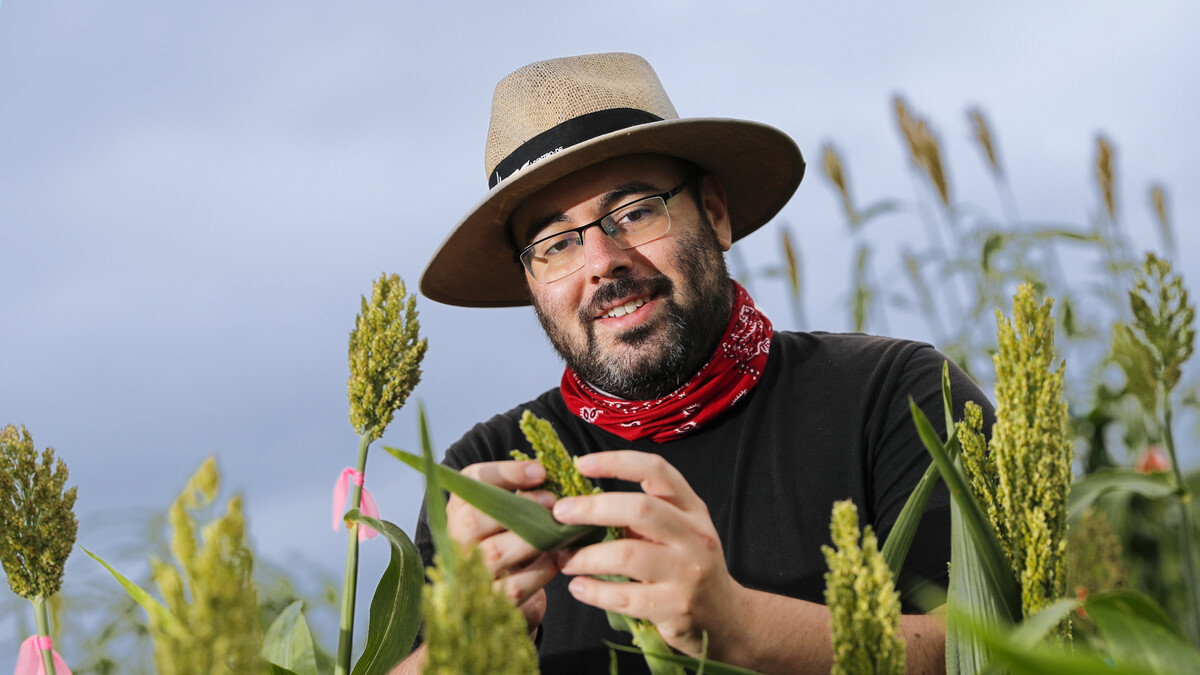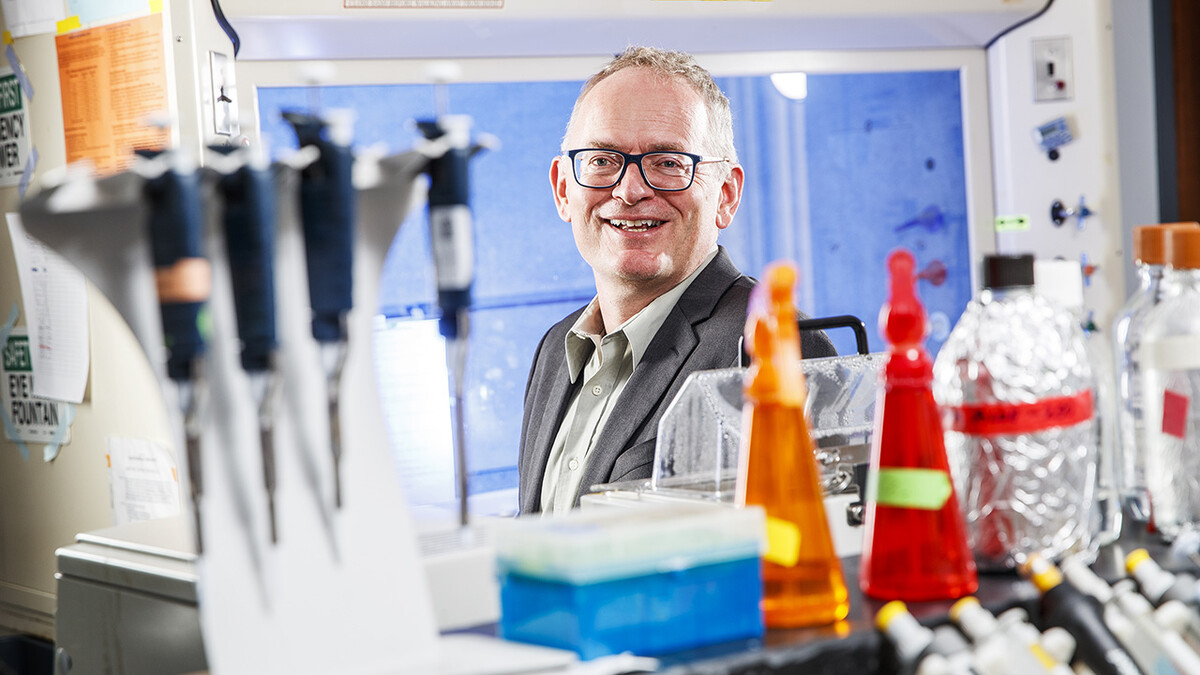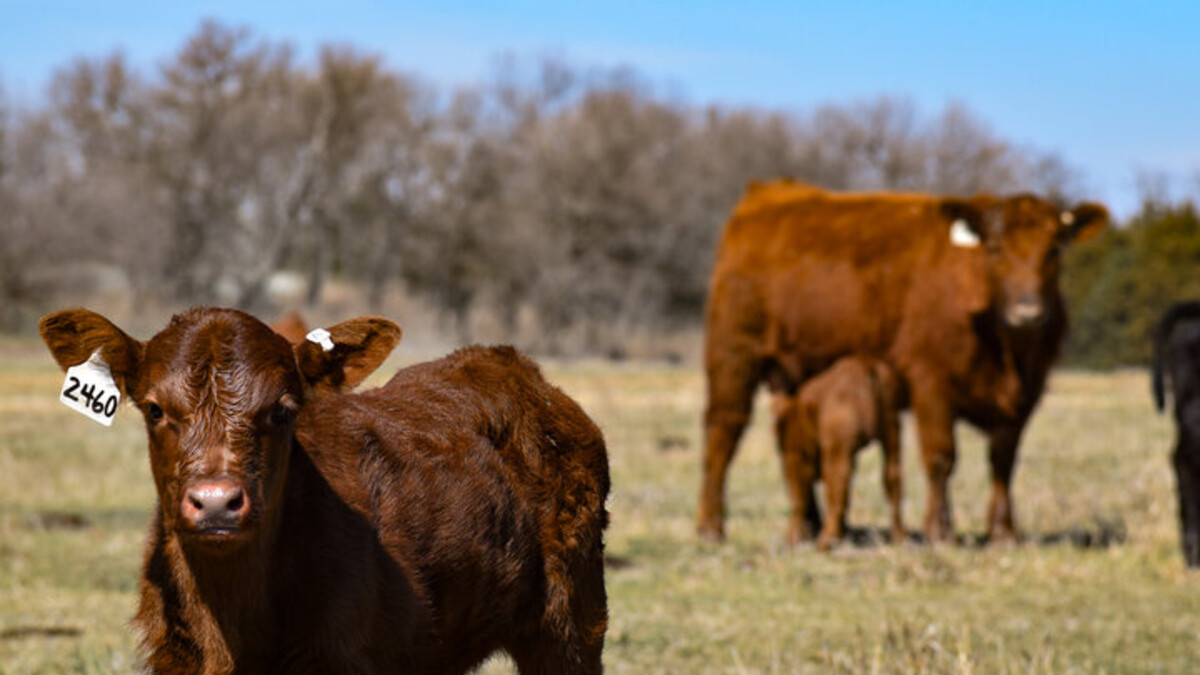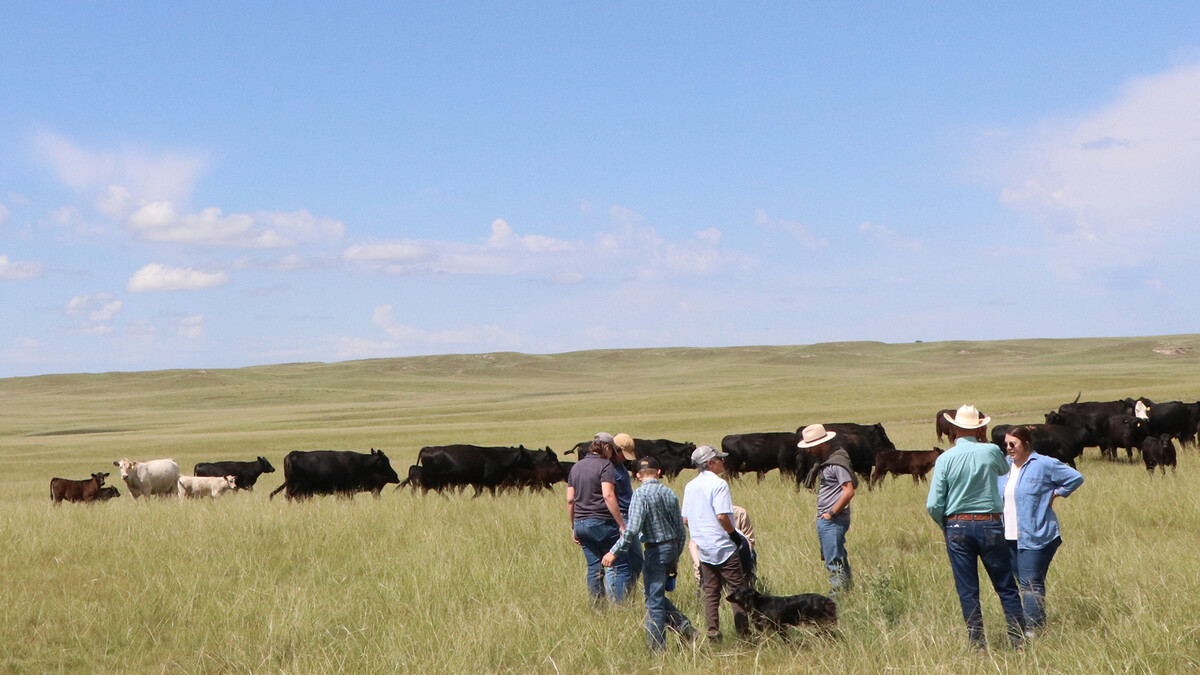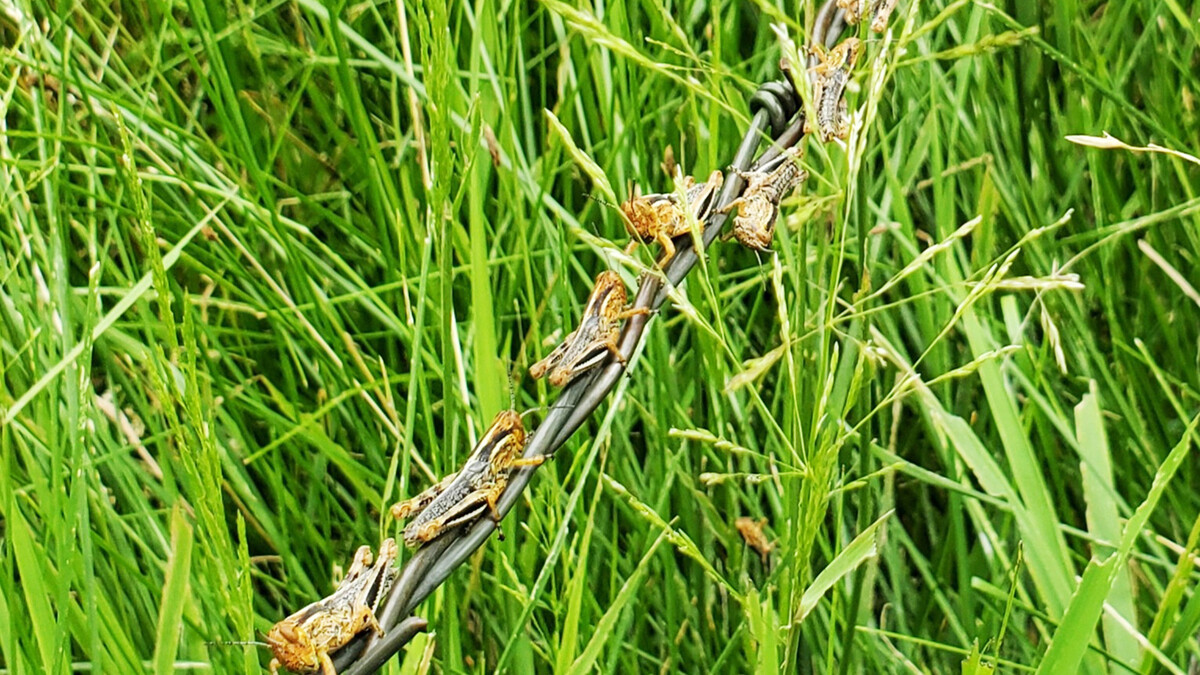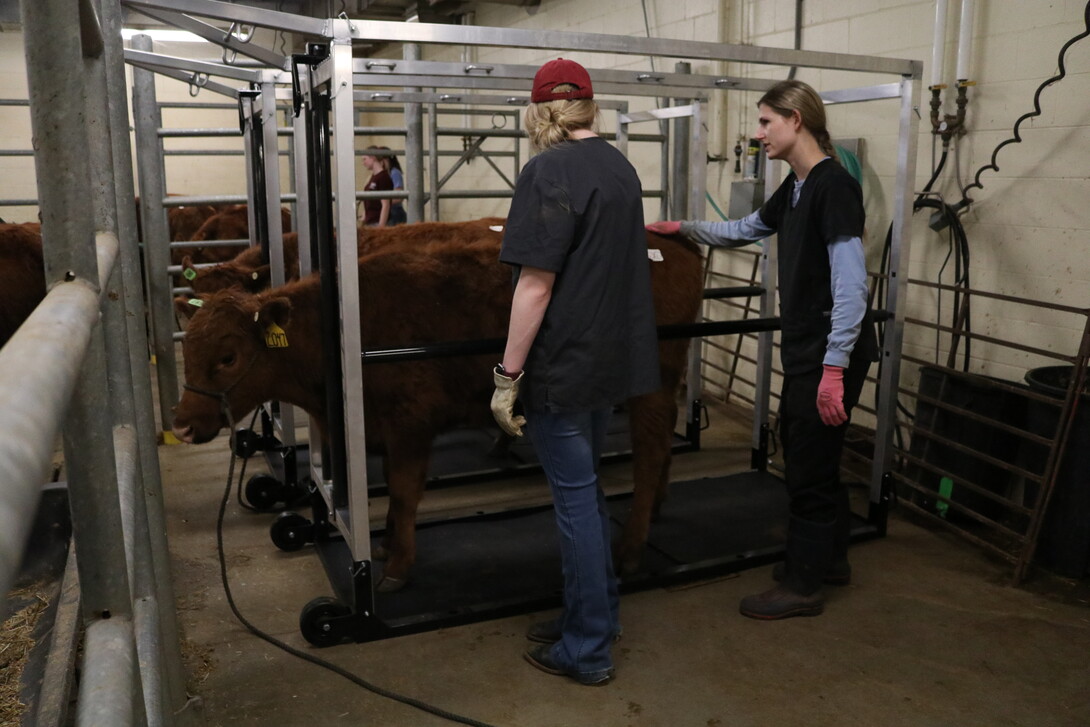
Lincoln, Neb. — Heat stress can cause an assortment of complications in cattle from reduced feed intake to death in severe cases. While places in the Midwest like Nebraska do not see many cases of chronic heat stress events where cattle are exposed to excessive heat for six or more days, acute heat stress events characterized by shorter exposure to excessive heat are typical during the summer and can be challenging to predict and prepare for.
Several researchers in the University of Nebraska-Lincoln Department of Animal Science and West Central Research, Extension and Education Center are collaborating to study the physiology, genetics, behavior and precision livestock management strategies of acute heat stress in feedlot cattle in the Midwest. This project is being led by animal science professors Ty Schmidt, Jessica Petersen, Dustin Yates and Ruth Woiwode.
Brooke Parrish, a doctoral student at UNL studying animal health, welfare and precision management, and Rachel Gibbs, a former postdoctoral researcher at UNL and current livestock extension specialist for North Dakota State University, are also involved in this study alongside a large group of undergraduate and graduate students in the Animal Science Department at UNL.
“We are uniquely positioned in Nebraska being the highest producing beef state along with Texas,” Parrish said. “Issues concerning feedlot cattle should be studied, in Nebraska. Knowing how producers can best manage their cattle during acute heat stress events is important because, although a lot of research has been done on chronic heat stress, the four to five-day, or less, event is an area that needs to be studied more so that producers can better mitigate acute heat stress.”
Research begins with phase one at the university’s East Campus. Cattle are placed in a controlled environment that mimics an acute heat stress event. During this, graduate students and researchers collect biological samples for physiological and genomic analysis and monitor behavioral changes directly related to cattle response to acute heat stress.
During phase two, cattle are moved to the West Central Research, Extension, and Education Center feedlot in North Platte where they are exposed to naturally occurring acute heat stress events. Cattle are constantly monitored through the NUtrack Livestock Monitoring System and biological data and samples are collected when acute heat events occur.
“Being able to follow up with a phase two has been really important to validate our research findings on campus to ensure we are providing applicable information for producers and feedlots throughout the Midwest,” said Gibbs.
Year two of five of this study is currently in progress.
Heat stress events are becoming more common in the Midwest as well as areas northwest. This research will provide producers with practical information to apply to their operations and fill a significant gap in understanding the impact acute heat stress has and will continue to have on livestock production systems.
Being able to quantify what the heat events are, their effect on livestock, and prevention or mitigation practices will help producers care for cattle better during heat stress events.
“One of the most exciting parts for me is learning how we can use precision technology to help improve the lives of both cattle and producers during challenges such as heat events,” Parrish said.
Future research on the topic could include analyzing biomarkers for predicting heat stress susceptibility and developing an algorithm for the NUtrack Livestock Monitoring System that would notify the producer if an animal needs attention.
Funding Acknowledgement: This project is based on the research that was partially supported by the Nebraska Agricultural Experiment Station with funding from the Hatch Multistate Research capacity funding program (Accession Number 7000952) from USDA National Institute of Food and Agriculture.
